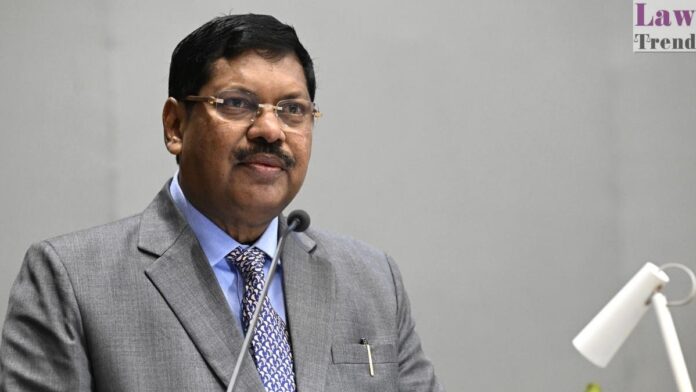Chief Justice of India BR Gavai on Friday addressed the perception that the Supreme Court functions solely at the discretion of the Chief Justice and emphasised the importance of inclusive and collaborative decision-making in the highest court of the country.
Speaking at a felicitation event organised by the High Court Bar Association of Nagpur, his home bar, CJI Gavai said, “There is a growing belief that Supreme Court is a CJ’s court and not a court of all judges. But I must say that Justices UU Lalit, Sanjiv Khanna, and I have attempted to dispel that notion. Immediately after Justice Lalit took over as CJI, he had a full court meeting on the very next day. I also held a full court meeting immediately on the next day of assuming the office. We took all the decisions by taking into consideration views of everyone.”
“Judicial Activism Must Not Become Adventurism or Terrorism”
Addressing the limits of judicial intervention, CJI Gavai reflected on the evolving role of the judiciary. “I always felt judicial activism was necessary because whenever the executive or the legislature failed, the judiciary had to step in so as to act as custodian of the rights of the citizens. But I also feel that all the three wings should work within the spheres allotted to them. And though judicial activism is here to stay, it should never turn into judicial adventurism or judicial terrorism. I still believe in the same principle,” he stated.
Recalling Humble Beginnings and Personal Values
The Chief Justice also shared personal memories of his early years in the legal profession. “I followed my father’s decision to become a lawyer. It’s my mother’s hard work. Though we had a humble background… It’s this value of inclusiveness that has shaped my future life,” he said.
Reflecting on his work on the Public Interest Litigation (PIL) bench, CJI Gavai spoke about his involvement in facilitating the long-delayed construction of the Nagpur-Jabalpur Highway, which had seen more than 100 fatalities due to accidents. He said the court ensured that development was carried out in a sustainable manner. “We adopted the model of sustainable development and while ensuring that the highway is constructed, also ensured that the ecology and interest of the wildlife is maintained by providing for long subways so that the animals travelling from one part of the jungle to another… find that they are travelling in the same jungle.”
“One Rank, One Pension” for Judges
Among the initiatives he said he holds most dear is his decision regarding pension parity for retired judges. “I applied the principle of one rank, one pension. Some of the judges were living in penury. I was aghast when I came to know that a retired judge of some High Court was getting a pension of ₹7,000 to ₹8,000,” CJI Gavai said.
Transparency in Judicial Appointments
Responding to questions around transparency in judicial appointments, CJI Gavai maintained that the collegium system is committed to fairness. “I think we are following transparency. We try to maintain seniority and merit in the matters of selection and Justice Chandurkar is a living example of that,” he noted.
Notable Dignitaries in Attendance
The event was attended by a distinguished gathering of jurists and senior legal officers, including former Chief Justice of India UU Lalit, Supreme Court Justices Dipankar Datta, Prasanna B. Varale, and Atul S. Chandurkar, Chief Justice of the Bombay High Court Alok Aradhe, Bombay High Court Justices Anil S. Kilor and Nitin W. Sambre, Solicitor General Tushar Mehta, and Maharashtra Advocate General Dr. Birendra Saraf.




